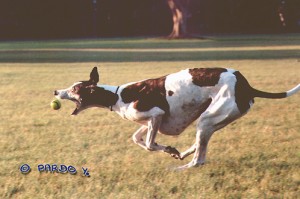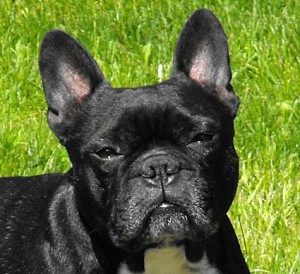The NSW Government’s decision to ban greyhound racing in NSW has come as a shock to the industry. Media screams (inaccurately as it turns out) about “70,000 dogs killed” (actually the report states 68,000 over 12 years , or 5,667/year) and “systematic animal cruelty” (live baiting aside, the “cruelty” seems to be related to euthanasia of animals, humane or otherwise).
The report can be found HERE . It’s worth reading. We did. Some of it is horrifying.
There is no question that the industry has much to answer for! But is “banning” the right government response? Regardless of whether or not you like greyhound racing, think about the issues below….
In policy terms, “banning” anything leads to:
- making it more desirable to criminal gangs
- driving whatever it is underground, so you can’t see what’s actually going on, but the government can take a moral high ground (the “Pontius Pilate” defence), which lets them “off the hook”. After all, cock fighting is common in parts of all Australian cities, but there is little prosecution or enforcement. Typically government enforcement is weak, and prosecution not significant enough to stop behaviour.
- those who will abuse a system continuing to do so, either in the same field (underground) or by moving to another field (state, or industry)
“Banning” is a favourite, populist, government response to anything that a group doesn’t like. It’s an easy alternative for governments because they can walk away from a problem. BUT there is clear evidence that “Banning” things just doesn’t work. “Banning” drugs fuels international cartels and occupies too much police time. “Banning” alcohol in teens produces binge drinking by making it exciting. “Banning” puppy farms simply hands the market to backyard breeders. 
Dogs will run. They love to run. Many have a naturally high chase drive and love to chase. Wherever there are two dogs that love to run, a human will naturally ask which dog is faster. After all, we have seen both Afghan and Jack Russell racing; and flyball and agility trials are both very popular.
So is banning, or properly enforceable regulation the answer? While it is absolutely clear that the NSW greyhound industry has been a mess, it’s worth noting in passing that the campaign to stop it has been largely driven by activist groups – whose policy is that no animal can be used for “entertainment”. THAT includes owning pets, flyball, obedience, dock dogs, and purebred dog breeding for show. PETA, Animals Australia and others have already announced that this is simply another step towards removing animals from human lives.
While activist groups have been useful in the NSW greyhound industry by pointing out terrible practices; making policy based on activist “exposure” encourages activism in every industry, and encourages populism rather than considered policy. Getting policy right is more complex than just “banning”.
Here’s some thoughts…
- Why ban greyhound racing and not horse racing? Because there is MONEY supporting horse racing. According to activist allegation, 18,000 horses are “slaughtered” annually because they are not fast enough. That’s THREE TIMES higher than the reported greyhound euthanasia in NSW. Is the government simply picking an easy target?
- Why ban greyhound racing “on a moment’s notice”? That will lead to THOUSANDS of greys being euthanased, because owners will no longer be able to feed them.
- Why ban greyhound racing and not Jumps racing? Why not “The Trots”?
- Why ban greyhound racing and not ban the organised and government approved culling of feral animal species that are currently driving some species of native wildlife to extinction?
- What happens to those in the NSW greyhound industry (and there are some) that rehome retirees and puppies, race ethically, and engage in high levels of animal welfare? What message is the government sending to those who actually do the right thing?
- Outside live animal baiting (which always has been illegal), is the “systematic cruelty” inflicted on a racing greyhound any greater than that inflicted on those Brachycephalic dogs who have to fight for every breath, snore themselves awake at night, or undergo extensive surgery to survive?
- Why was the extent of the cruelty in the industry not exposed, and enforcement and prosecution implemented on a large scale by those with authority under POCTA? Why was enforcement and exposure left to activist groups?
- Where are the policy and legislation proposals that will provide ACTUAL enforcement and punishment for those who will illegally race after any ban?
- What’s next? Are we going to see state by state, activist driven, policy driven evidence leading to bans on “the next thing”? There is clear evidence that this is already happening in farming, pet breeding, and pet sales. What a mess!
Can the greyhound racing industry be run in a manner acceptable to the majority of the population?
We don’t know. Vic and Qld say that it can, and they have announced that they have ethical and proper practices in their industry. We have been unable to examine the difference between the states. But the whole issue is worth thinking about in bigger terms than just “we don’t like racing so it’s OK for the government to ban it“.
THE REPORT IS BEING IGNORED. There are 76 recommendations in the report, which is supposed to be considered by parliament as appropriate to any democracy. A unilateral decision to “ban” without anyone properly and publicly considering the report sends a bad message. Parliament exists to deal with complex issues in a considered way on behalf of the whole population. Due process adds legitimacy to decisions.
 Think of the things that you like to do – obedience, flyball, dock dogs, agility; own the breed or breed mix of your choice. Then think of the things you do outside the pet world – put a snag on the BBQ, take a headache pill , have a quiet glass of wine with dinner, or your sweep ticket in the Melbourne Cup.
Think of the things that you like to do – obedience, flyball, dock dogs, agility; own the breed or breed mix of your choice. Then think of the things you do outside the pet world – put a snag on the BBQ, take a headache pill , have a quiet glass of wine with dinner, or your sweep ticket in the Melbourne Cup.
in each of the above situations there are some people causing harm, and groups who don’t like what you are doing – who believe that all these activities should be banned. How would you feel if the government suddenly banned activities you do, because some people have misused those things or don’t believe the same things you do?
Pets Australia believes that:
- As a general statement, “Banning” as a policy response is only acceptable when other policy options are shown to be exhausted.
- There is no question that the NSW Greyhound industry has a significant case to answer and prosecutions under POCTA should continue.
- The Parliament of NSW should be required to consider all the recommendations of the report before a ban is initiated.
- That there is a need for more robust enforcement and prosecution under POCTA generally, with legislation change to significantly increase penalties required
- That enforceable Codes of Practice be developed for activities in relation to animal use under POCTA, focused on the well-being of the animal rather than the current focus on facilities and technicalities of documentation.
- That regulation of animal industries should be under Federal Government control and regulated in the same way as farming, through enforceable and enforced Codes of Practice.
Pets Australia invites member comment on these proposals – email petsaustralia@petsaustralia.org or phone the office on 02 8214 8653.
POCTA= Prevention of Cruelty to Animals (Act) in each state.

